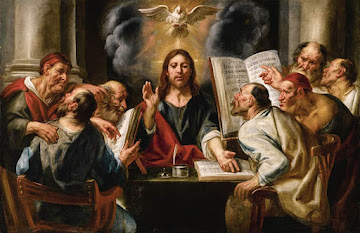One of the things Jesus says in today’s Gospel reading is “No one has greater love than this, to lay down one's life for one's friends.” Then, He says “You are my friends,” and “I have called you friends…” There is no greater love than what Jesus does in laying down His life for us. He calls us His friends. He gives Himself up for us, and continually gives Himself to us in the Holy Eucharist because we are joined to Him in friendship by grace.
Because of the way He was killed and how our imagination works, our thoughts can easily drift to the idea that Jesus’ life was taken. We often speak of this way when a person passes away. We say they ‘lost’ their life or they were ‘robbed’ of life. This is not the case with Jesus.
Jesus was indeed brutally killed by Romans at the insistence of the vocal Jewish religious leadership contingent in Jerusalem. Yet, we must always recall that He willingly came into the world and willingly allowed these events to transpire. Nothing forces God to act. Nothing extrinsically compels the Son of God to take on human flesh. Nothing and no one can mandate that Christ suffer and die for the sins of the world. The incarnation of the Lord Jesus, His life, and His sacrificial death are simply the overflowing divine love. The love that exists eternally in the Triune God infuses itself into creation. There can be no greater love than Jesus laying down His life because there can be nothing greater, and therefore no greater love, than God.
Much is made of the difference between how the Church has defined love, willing the good of the other (as other), and how the modern world has perverted this definition into a reductionist, emotivist description of the concupiscible. The absurdity of the colloquial ‘love is love’ is sharply contrasted with the life, death, and resurrection of Jesus. There is love, which is what Jesus does and shows, and then there is something else.

No comments:
Post a Comment